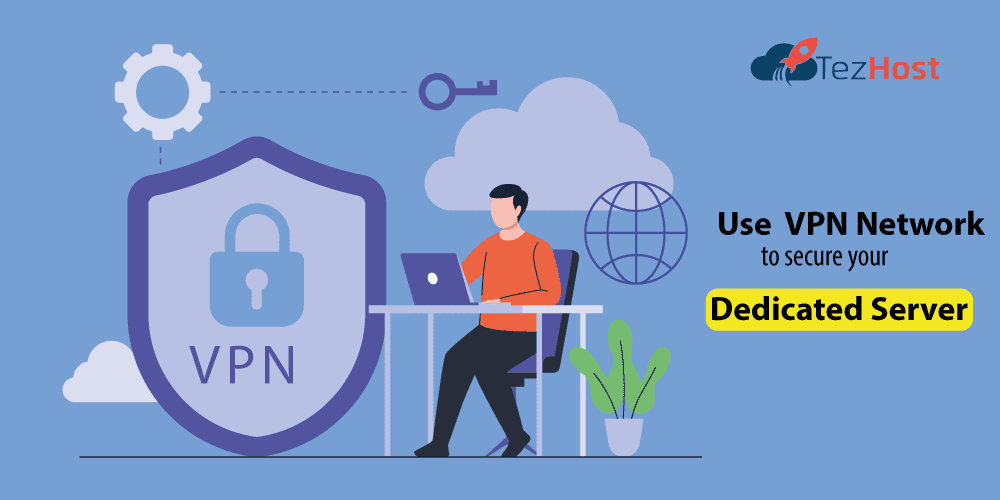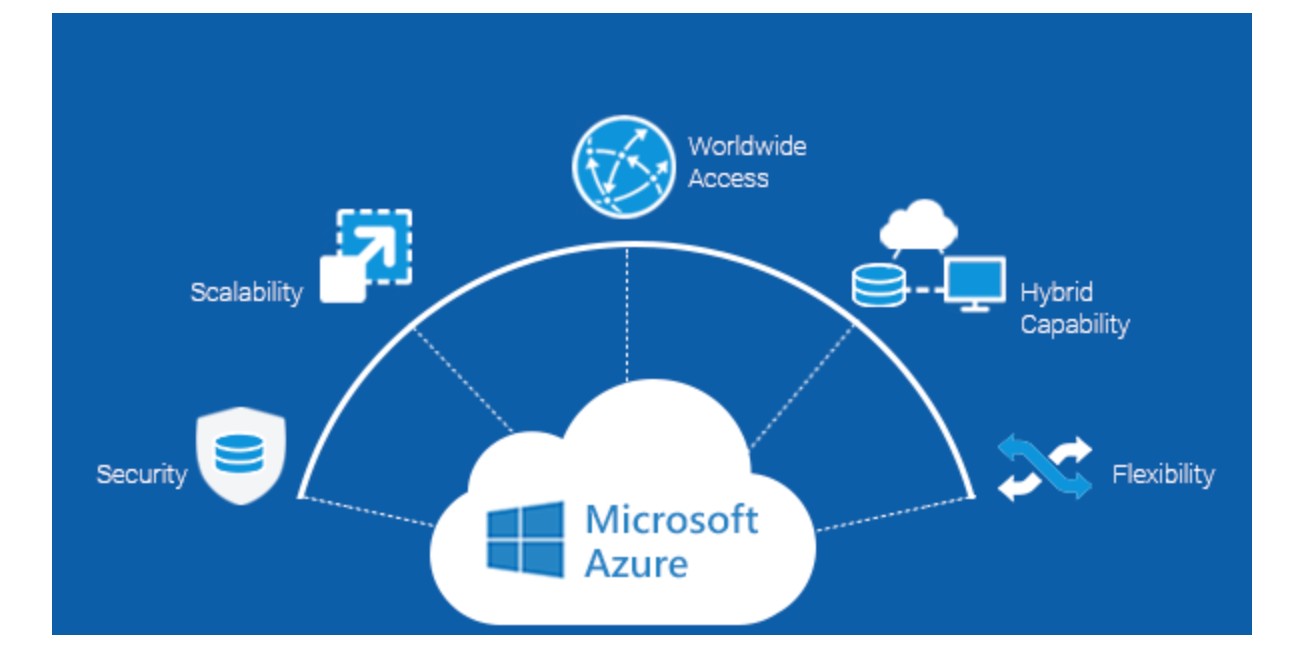In the ever-expanding digital landscape, ensuring the security of your dedicated server is paramount. A dedicated server, with its exclusive resources and unparalleled performance, serves as the backbone for many businesses and websites. However, with great power comes an even greater responsibility — the responsibility to fortify your server against potential threats and vulnerabilities.
This article is your comprehensive guide to mastering the security of your dedicated server. We’ll navigate through the nuances of dedicated server security, understanding the unique challenges it poses, and equip you with practical strategies to keep your server fortress impenetrable. Whether you’re a seasoned IT professional or a business owner managing your digital presence, this guide will empower you to bolster your dedicated server’s defenses and navigate the dynamic landscape of online security with confidence.
How Does a Dedicated Server Differ in Security?
Understanding the security dynamics of a dedicated server requires a closer look at its distinctive features. Unlike shared hosting environments where multiple websites coexist on a single server, a dedicated server is exclusively devoted to one user. This inherent isolation brings a significant security advantage. In shared hosting, if one website on the server faces a security breach, the others may be at risk. However, with a dedicated server, the risk of cross-contamination is eliminated. The exclusive use of resources means that the server’s security posture is dictated solely by the practices and configurations of the single user or entity.
Moreover, the enhanced control provided by dedicated servers allows for robust security configurations. Users have the freedom to implement and customize security measures based on their specific needs. This level of control extends to firewall settings, access permissions, and the ability to dictate who can and cannot interact with the server. While other hosting types relies on a standard security setup for all users, a dedicated server empowers users to tailor security protocols to align with their unique requirements. In essence, the fundamental difference lies in the level of autonomy and control offered by a dedicated server, providing a robust foundation for crafting a personalized and resilient security infrastructure.
Different Ways to Keep Your Dedicated Server Secure
Securing a dedicated server involves a multifaceted approach to fortify its defenses against potential threats. From establishing a robust firewall to fine-tuning user access and permissions, there are several key strategies that users can employ to bolster the security of their dedicated server. Let’s delve into these proactive measures that collectively contribute to creating a secure environment for your server.

Implement a Firewall
One of the foundational elements of dedicated server security is the implementation of a robust firewall. Acting as a digital barrier between your server and potential threats, a firewall monitors and controls incoming and outgoing network traffic based on predetermined security rules. This ensures that only authorized communication is permitted, mitigating the risk of unauthorized access and potential cyber attacks.
Firewalls can be configured to filter traffic based on various criteria, such as IP addresses, protocols, or specific ports. Additionally, the use of both hardware and software firewalls provides an added layer of protection. Regularly updating firewall rules in response to emerging threats and security vulnerabilities is essential to maintaining the effectiveness of this security measure.
In essence, a well-configured firewall acts as a vigilant gatekeeper, significantly enhancing the overall security posture of your dedicated server.
All shared hosting options including Managed WordPress Hosting plans are firewall implemented.
tezhost.com
Protect Server Access
Securing your dedicated server involves both technological and user-focused measures. Regular security training ensures users are well-informed about potential threats. Educated users play a crucial role in recognizing and avoiding security risks.
Access control is equally vital. Specify user permissions meticulously, following the principle of least privilege. Disable direct root login, opting for a super admin account, and enforce session timeout policies. These steps create a strong foundation for safeguarding server access.
Regular Security Training for Users
User education is a cornerstone of a secure server environment. Regularly conduct security training sessions to keep users informed about best practices, potential threats, and how to recognize phishing or social engineering attempts. This proactive approach empowers users to play an active role in maintaining the server’s security posture.
Always stay up to date with new technology and trends. TezHost’s blog section is always on the top of the list when it comes to updated content on the topics related to Web Hosting and Domain names.
Specify User’s Account Permissions
Fine-tuning user account permissions is crucial for security. Only grant the necessary permissions to each user based on their role and responsibilities. Avoid a one-size-fits-all approach, as unnecessary privileges increase the risk of unauthorized access. Regularly review and update user permissions, ensuring they align with the principle of least privilege, enhancing overall server security.
Disable Root Login
Root access is like a master key, powerful but risky if misused. Disabling direct root login adds an extra layer of security. Instead, create a super admin account with elevated privileges for daily tasks. This approach limits routine activities to a designated account, reducing the chance of accidental critical changes. Combine this with robust password policies for heightened protection against unauthorized access.
Enforce Session Timeout Policies
Session timeouts are an essential security measure. When users remain inactive for a specified period, automatic logouts occur, mitigating risks associated with unattended sessions. By enforcing session timeout policies, you ensure that even if a user forgets to log out, the system proactively ends their session, minimizing exposure to potential threats. This preventive step significantly enhances the overall security posture of your dedicated server.

Have A Strict Password Policy
Establishing a robust password policy is paramount for dedicated server security. Encourage or mandate users to create strong, complex passwords that are difficult to guess. Specify requirements like a minimum length, a mix of uppercase and lowercase letters, numbers, and special characters. Regularly prompt users to update their passwords, minimizing the risk associated with prolonged use of the same credentials. A strict password policy acts as a frontline defense against unauthorized access attempts, fortifying the overall security of your dedicated server.
Implement Two-Factor Authentication (2FA)
Enhance the security of your dedicated server by implementing Two-Factor Authentication (2FA). This adds an additional layer of protection beyond the traditional username and password. With 2FA, users must provide a second authentication factor, typically a temporary code sent to their mobile device, or apps like Google Authenticator to access the server. Even if login credentials are compromised, unauthorized access is thwarted without the secondary authentication step. 2FA significantly reduces the risk of unauthorized access and strengthens the overall security posture of your dedicated server.
Configure IP Whitelisting
Optimize the security of your dedicated server by configuring IP whitelisting. This involves specifying a list of trusted IP addresses that are allowed access to the server. With IP whitelisting, only connections from the pre-approved IPs are permitted, adding an extra layer of defense against unauthorized access attempts. By restricting access to known and trusted sources, you minimize the risk of malicious actors gaining entry. This proactive security measure is particularly effective in preventing unauthorized access and fortifying your server against potential threats.
Employ Fail2Ban or Similar Tools
Enhance the security posture of your dedicated server by employing tools like Fail2Ban. Fail2Ban is a security application that protects your server by monitoring log files for malicious activity and implementing temporary bans on IP addresses exhibiting suspicious behavior. This tool is effective in thwarting various types of attacks, including brute-force attempts and other malicious activities. By automatically responding to potential threats and implementing temporary bans, Fail2Ban contributes to the overall security and stability of your dedicated server. Consider integrating such tools into your security strategy to bolster protection against evolving cyber threats.

Modify The Default SSH Port Number
One effective measure to enhance the security of your dedicated server is to modify the default SSH (Secure Shell) port number. The default port for SSH is 22, and attackers often target this port for unauthorized access attempts. By changing the default port, you add an extra layer of security, making it more challenging for potential intruders to identify and exploit vulnerabilities. This simple yet impactful step can significantly reduce the risk of unauthorized access through automated attacks. However, it’s crucial to document and remember the new port number, as it will be required for legitimate SSH access.
When modifying the SSH port, ensure that your server’s firewall is configured to allow traffic on the new port. Additionally, update your SSH configuration file to reflect the changed port. While this doesn’t guarantee immunity from all cyber threats, it adds a valuable layer to your server’s defense strategy, making it a less predictable target for malicious actors.
Install Security Updates & Patches
Regularly updating your dedicated server’s software, operating system, and applications is a fundamental aspect of maintaining robust security. Security updates and patches are released by software developers to address identified vulnerabilities and strengthen the overall security posture. Failing to apply these updates promptly can leave your server exposed to potential exploits. Even you can compare VPS with Dedicated Server to dive dipper into the updates and patches.
Automated updates can simplify this process by ensuring that the latest security patches are applied promptly. Implementing a routine schedule for checking and applying updates is a proactive approach to mitigating security risks. Always verify that your server’s critical components, including the operating system, web server, and applications, are up to date with the latest security patches to fortify your server against evolving threats.
Configure Automatic Updates
Configuring automatic updates is a crucial practice in maintaining the security of your dedicated server. Automatic updates ensure that your server’s operating system and essential software components receive the latest security patches promptly. This proactive approach minimizes the window of vulnerability and helps safeguard your server against potential exploits.
Most modern server operating systems provide tools for automatic updates, allowing you to schedule the installation of patches during non-business hours to minimize disruption.
Periodic Security Assessments
Periodic security assessments are essential for maintaining a resilient defense against evolving threats. Regularly evaluating the security posture of your dedicated server allows you to identify vulnerabilities and weaknesses that could be exploited by malicious actors. These assessments involve comprehensive audits of your server’s configurations, network settings, and installed applications.
During a security assessment, consider employing vulnerability scanning tools and penetration testing methodologies to simulate potential cyber attacks. These simulations help uncover vulnerabilities that might go unnoticed in day-to-day operations. Additionally, assess user account privileges and access controls to ensure they align with the principle of least privilege.

Secure Web Server Configurations
Configuring your web server securely is paramount for safeguarding your dedicated server against various cyber threats. Web servers, like Apache or Nginx, play a critical role in serving your website or applications. Here are key considerations for enhancing web server security:
The main steps to take ensure your web server configurations are secure are Disable Unnecessary Modules, HTTP to HTTPS Redirection, Directory Listing Restrictions, Error Handling, and Logging and Monitoring. By configuring your web server with these security measures, you bolster your server’s defenses, creating a robust barrier against cyber threats and ensuring the secure delivery of your online content.
Shared Hosting plans come with configured servers and free SSL certificates. When you use are using dedicated servers you need to secure your web server and you have to arrange SSL. Here are some other notable differences between Dedicated Hosting vs Shared Hosting
Use Security Headers
Enhancing the security posture of your dedicated server involves the strategic use of HTTP security headers. These headers provide additional layers of protection by controlling how browsers handle your website. Here are crucial security headers to fortify your web application:
- Strict-Transport-Security (HSTS): Enforce the use of secure, encrypted connections by instructing browsers to only connect via HTTPS. This helps mitigate man-in-the-middle attacks and ensures a secure connection to your server.
- Content Security Policy (CSP): Define and enforce the allowed sources of content on your web pages. CSP helps prevent cross-site scripting (XSS) attacks by specifying which domains are valid sources for different types of content.
- X-Content-Type-Options: Set the X-Content-Type-Options header to nosniff to prevent browsers from interpreting files as a MIME type other than declared by the server. This reduces the risk of MIME-sniffing vulnerabilities.
- X-Frame-Options: Mitigate the risk of clickjacking attacks by setting the X-Frame-Options header. This directive instructs browsers on whether to allow a webpage to be framed. It can be configured to deny framing or allow framing only from specific domains.
- Referrer-Policy: Control the information sent in the HTTP Referer header by setting the Referrer-Policy header. This helps safeguard sensitive information by determining what data is shared when a user clicks on a link.
Implementing these security headers contributes significantly to safeguarding your web applications. They provide an additional layer of defense against common web vulnerabilities, ensuring a more secure online environment for your users.
Protect Your Databases
The security of your dedicated server extends to safeguarding the databases it hosts. Given that databases often contain sensitive information, implementing robust measures is essential. Here are key strategies to enhance the security of your databases:
SQL Injections
Guard against SQL injection attacks by validating and sanitizing user inputs. Use parameterized queries and prepared statements to ensure that user inputs are treated as data, not executable code. Regular code audits and testing can help identify and address potential vulnerabilities.
Remove Unused Software
Efficient server management involves periodic reviews of installed software to identify and remove unnecessary applications. Each piece of software introduces potential vulnerabilities, and regularly auditing and removing unused software reduces the attack surface, enhancing overall server security. By streamlining the software inventory, administrators free up system resources, optimize server performance, and facilitate easier maintenance.
Backup Your Data
Data is the lifeblood of any server, and ensuring its safety is paramount. Regularly backing up your data is a fundamental practice in server security. In the event of data loss due to hardware failure, human error, or a security incident, having reliable backups ensures the ability to restore critical information swiftly. Implementing automated backup solutions, storing backups in secure offsite locations, and regularly testing the restoration process are essential steps in safeguarding your data.
Encrypt Data
Securing your dedicated server involves fortifying your data against potential breaches. One key strategy is the encryption of sensitive information. Encryption transforms data into a coded format, ensuring that even if unauthorized access occurs, the intercepted data remains incomprehensible without the appropriate decryption key. This approach safeguards critical information during transmission and storage, preventing potential threats from compromising the confidentiality and integrity of your server’s data. Robust encryption protocols, such as AES (Advanced Encryption Standard), are commonly employed to bolster the overall security posture of dedicated servers.

In addition to protecting data in transit, encrypting data at rest is equally essential. This means applying encryption to stored data, whether it’s databases, files, or other information residing on your server’s disks. By incorporating encryption into your overall security strategy, you create a formidable barrier against unauthorized access, enhancing the privacy and resilience of your server’s valuable data.
Employ DDoS Protection
Distributed Denial of Service (DDoS) attacks pose a significant threat to the availability and performance of your dedicated server. Implementing DDoS protection measures becomes paramount in safeguarding your server against these malicious attacks. DDoS attacks aim to overwhelm a server with an influx of traffic, rendering it inaccessible to legitimate users. To counter this threat, employing dedicated DDoS protection services or tools is crucial.
DDoS protection mechanisms work by identifying and mitigating abnormal spikes in traffic, distinguishing between genuine user requests and malicious attempts to overwhelm the server. This proactive defense strategy helps maintain the operational continuity of your server, ensuring that it remains accessible to users even in the face of sustained DDoS attacks. By investing in robust DDoS protection solutions, you fortify your dedicated server against a common and disruptive online threat, enhancing its resilience and reliability.
Regularly Update SSL/TLS Certificates
Securing data transmission between your dedicated server and users’ browsers is paramount for maintaining confidentiality and integrity. SSL/TLS certificates play a pivotal role in encrypting this communication. However, these certificates, over time, may become susceptible to vulnerabilities. Regularly updating SSL/TLS certificates is a fundamental practice to ensure your server’s security. Managing a dedicated server is not easy as you have to be very careful when it comes to security of the server. I always suggest business owners and webmaster to make informed decision when choosing hosting for business.
Outdated certificates may expose your server to potential exploits, compromising sensitive information. Keeping SSL/TLS certificates up-to-date involves renewing them before expiration, adopting the latest encryption standards, and staying vigilant about emerging security protocols. This process not only fortifies your server against potential security breaches but also ensures compatibility with evolving web standards. Regular updates to SSL/TLS certificates reflect a proactive commitment to maintaining a secure communication channel between your dedicated server and users, fostering trust and data protection.
Use Secure Networks/ VPN
Shielding your dedicated server from potential security threats extends beyond local configurations. Embracing secure networks and virtual private networks (VPNs) is a strategic move to fortify the overall security posture. By utilizing secure networks, you add an additional layer of protection against unauthorized access and potential cyber threats.
A VPN enhances security by creating a private and encrypted connection between your server and other devices accessing it over the internet. This encrypted tunnel safeguards data during transmission, reducing the risk of interception by malicious entities. Whether your server is accessed by remote team members or users from various locations, a VPN ensures that data remains confidential and integrity is maintained. Implementing secure networks and VPNs showcases a commitment to comprehensive security measures, especially in an era where remote access is prevalent, making it an integral part of dedicated server security strategies.

Get a Managed Dedicated Server
In the realm of dedicated server security, opting for a managed hosting is a strategic decision that can significantly enhance overall protection. Managed dedicated servers offer a proactive and hands-on approach to security, with hosting providers taking the responsibility of monitoring, maintaining, and securing the server infrastructure.
When you choose a managed dedicated server, you leverage the expertise of professionals who specialize in server security. These experts stay vigilant against emerging threats, implement timely security patches, and ensure that your server operates in accordance with the latest security standards. Moreover, managed servers often come with robust backup solutions, providing an additional layer of resilience against data loss.
Conclusion
Securing a dedicated server is not merely a technical task but a crucial responsibility for anyone harnessing the power of exclusive server resources. In this comprehensive guide, we’ve explored the unique security dynamics of dedicated servers, emphasizing their autonomy and control over security configurations. Unlike shared hosting, the dedicated server’s isolated environment minimizes cross-contamination risks, offering users the freedom to tailor security measures according to their distinct needs.
The journey to fortify your dedicated server begins with understanding its security nuances and extends to the implementation of multifaceted security strategies. From fundamental measures like firewalls to advanced steps such as configuring secure web servers and employing DDoS protection, every aspect contributes to a robust defense against evolving cyber threats. Regular updates, encryption practices, and a proactive commitment to security measures further ensure the server’s resilience in the face of potential vulnerabilities.
Whether you’re an experienced IT professional or a business owner overseeing your digital domain, mastering the security of your dedicated server is an empowering endeavor. By adopting these proactive security practices, you not only safeguard sensitive data and ensure uninterrupted server availability but also navigate the dynamic landscape of online security with confidence. Remember, a secure dedicated server is not just a technical achievement; it’s a cornerstone for the trust and reliability your digital presence deserves.


